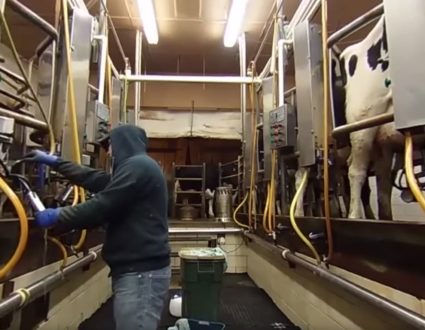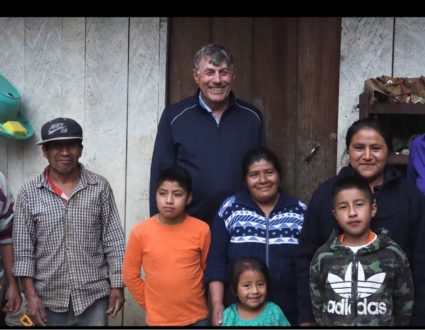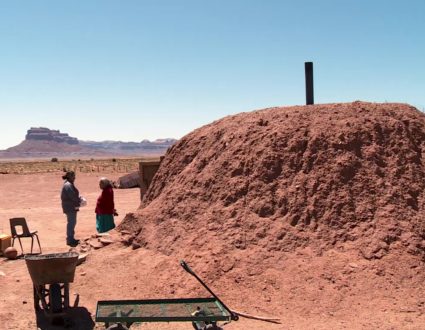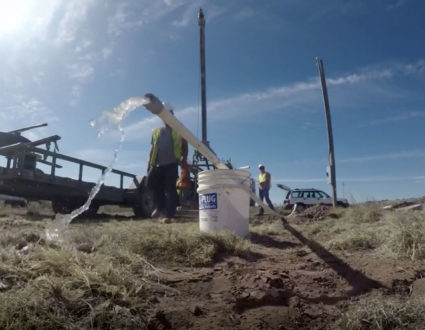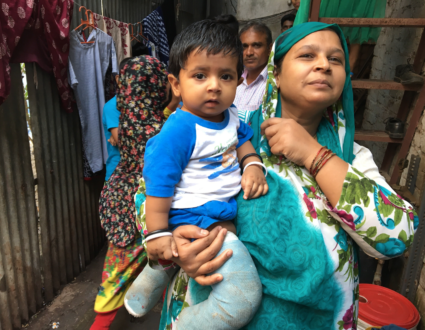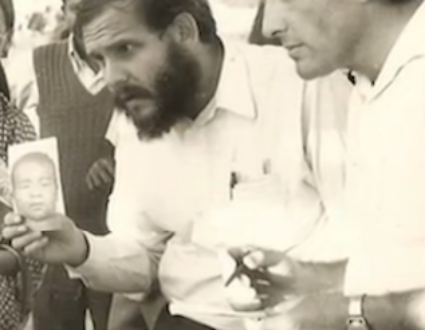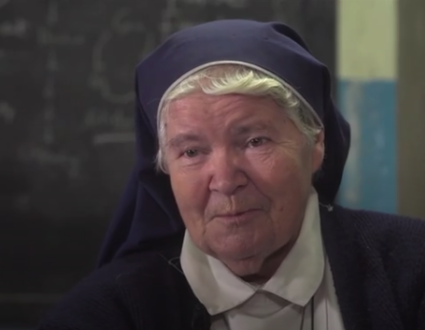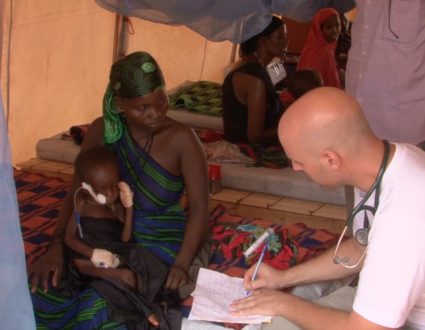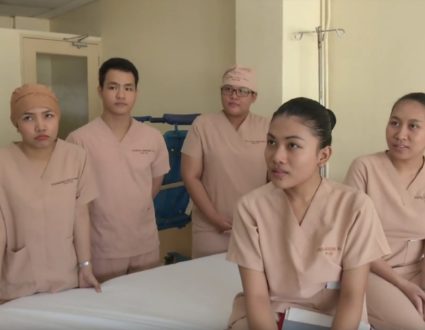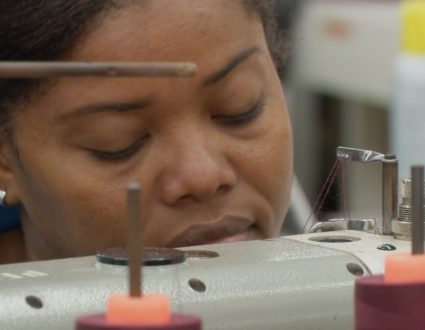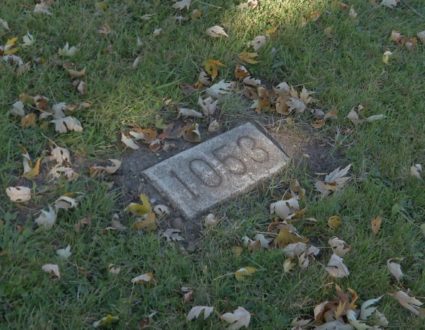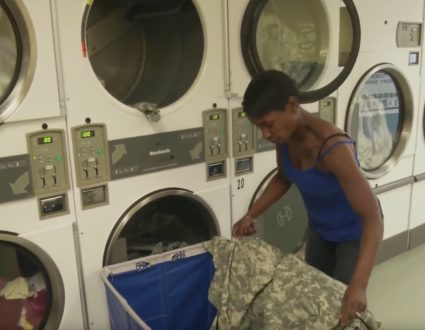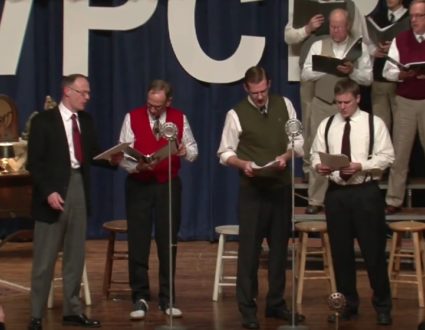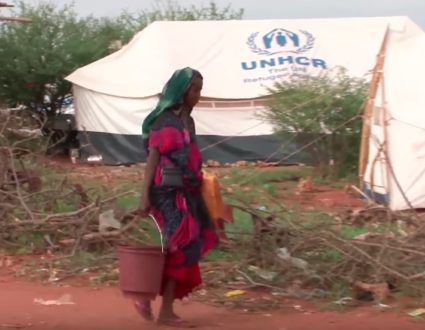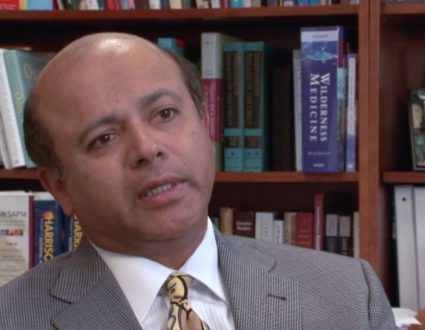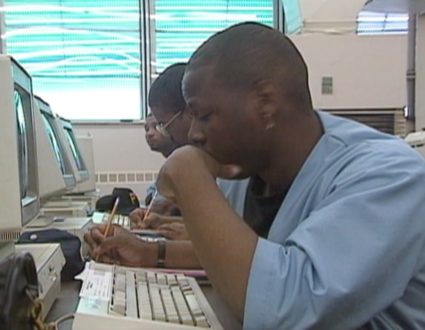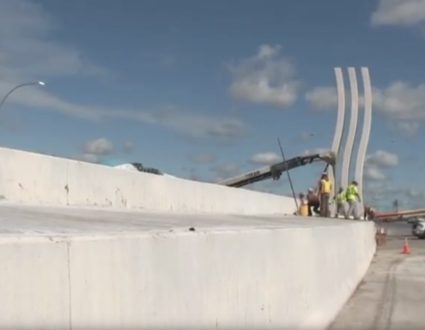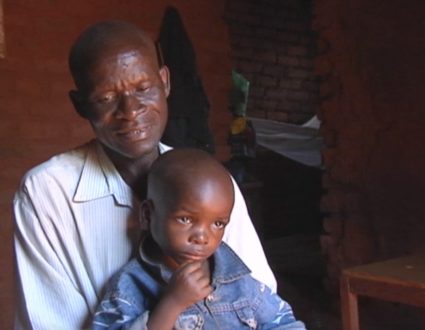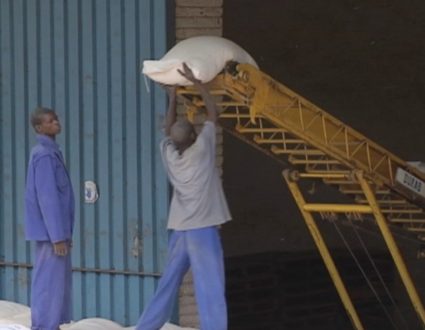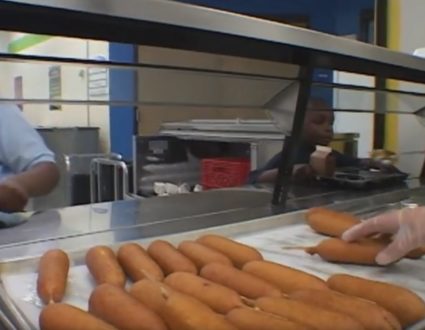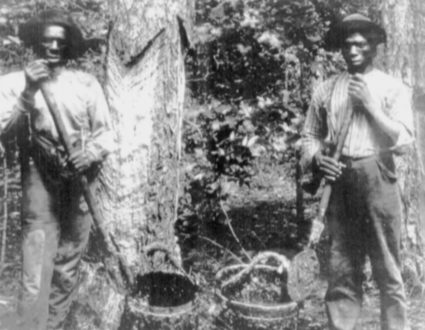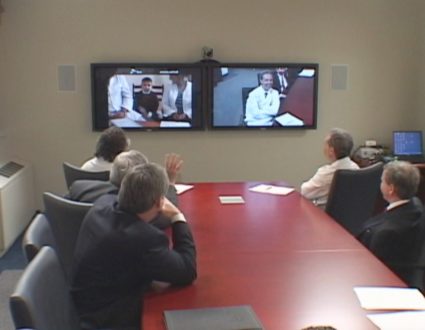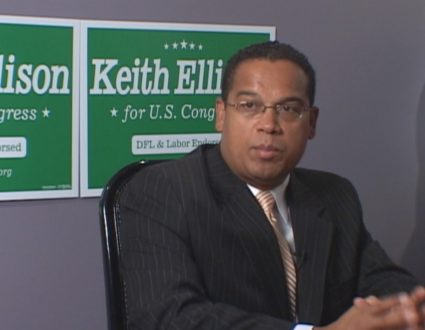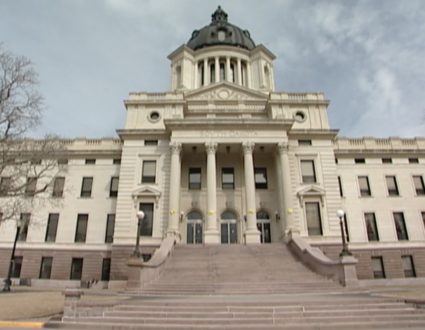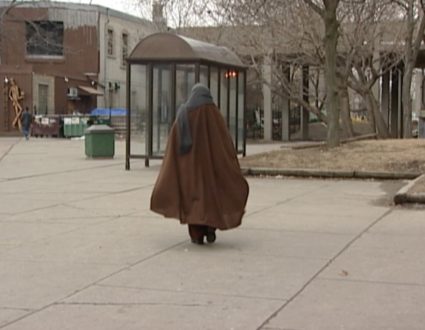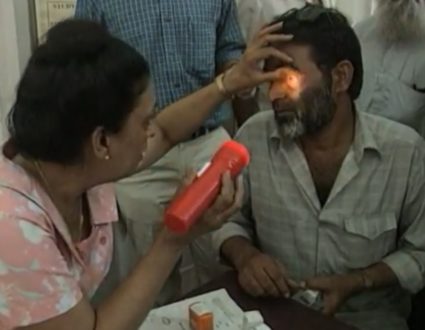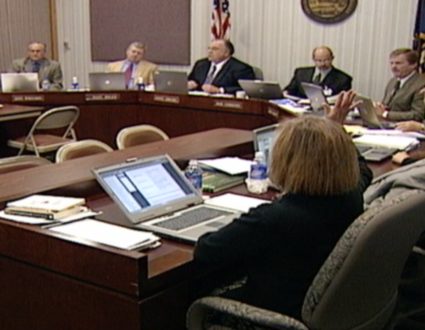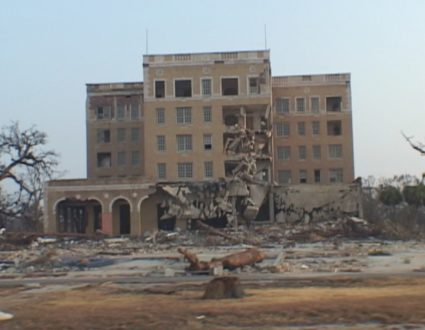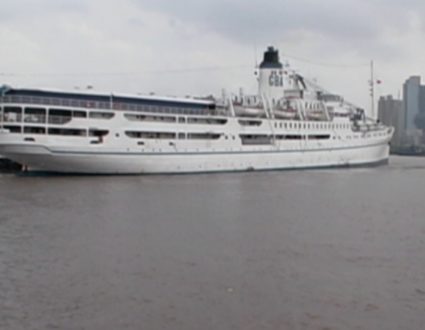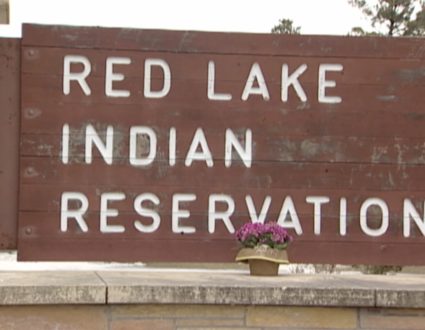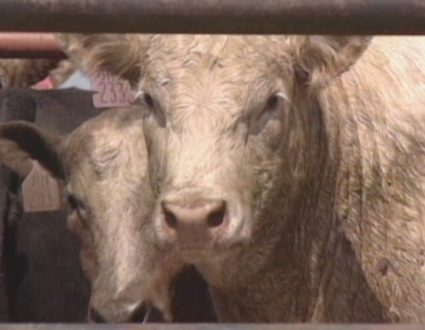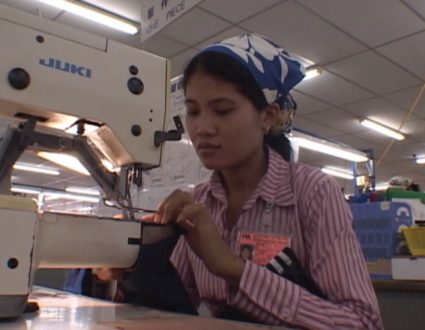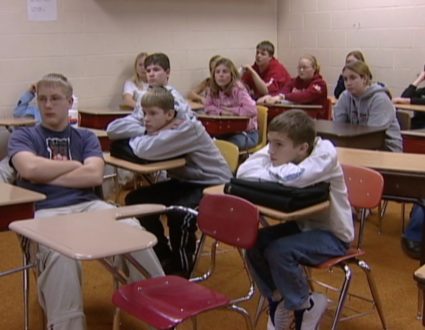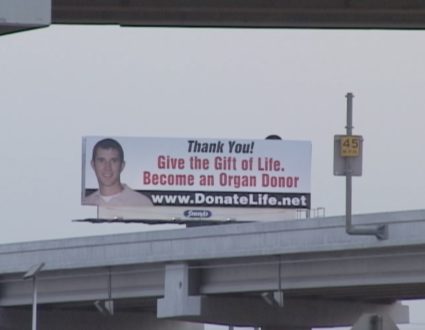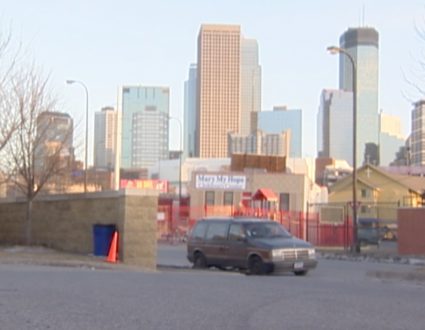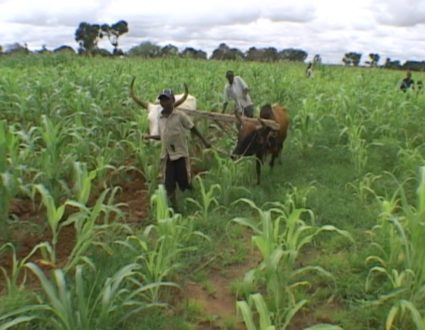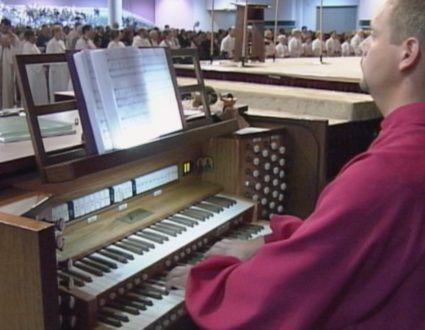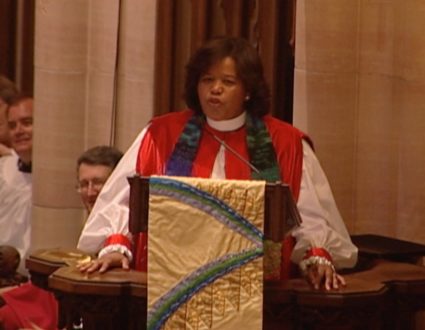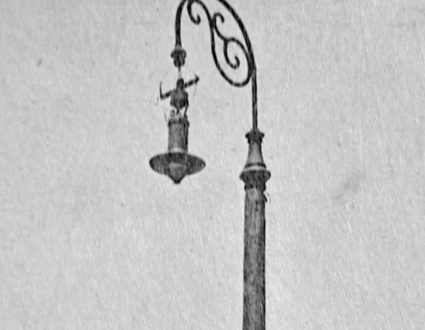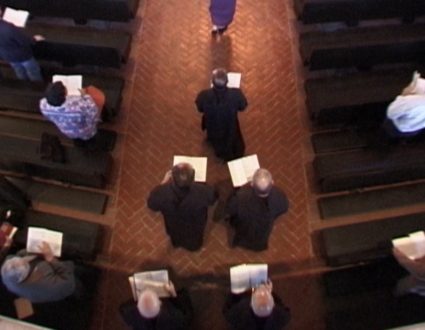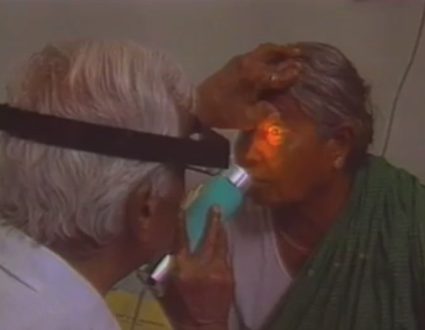Judy Woodruff:It has been nearly six weeks since production resumed in most meatpacking plants across the country. Many were shut down amid coronavirus outbreaks. More than 27,000 workers have become infected, and 99 have died.In late April, President Trump ordered plants to reopen or remain open, calling them critical infrastructure to preserve the nation’s meat supply.Special correspondent Fred de Sam Lazaro returns to one community in Minnesota where a pork processing plant is back online.
Fred de Sam Lazaro:Here in the Fabled Valley, the Jolly Green Giant stands tall and now even masked, but it’s actually pork, not peas, that reigns.The huge meat processing plants are now nearly back at full capacity. But things are not exactly jolly.
Woman (through translator):We’re still going to have to keep working in fear, but we know that we need to continue working. We have no option.
Fred de Sam Lazaro:In Worthington, Minnesota, population 13,000, the JBS factory was shuttered by a COVID outbreak that sickened hundreds of its 2,100 employees.The effect was felt across this region, mostly at first among hog farmers in late April. Hundreds of thousands of their animals had to be euthanized.
David Bullerman:It’s devastating. I’d like President Trump to invoke the Defense Production Act of 1950. We need to get these plants open today.
Fred de Sam Lazaro:Echoing farmer Dave Bullerman’s plea, industry executives warned, the nation’s meat supply was threatened, a claim some analysts now say was exaggerated, noting that, in April, there were record pork exports to China.
President Donald Trump:I should be signing that over the next hour or so.
Fred de Sam Lazaro:But, on April 28, President Trump did order meatpacking plants to reopen and remain open, declaring them critical infrastructure.
President Donald Trump:Taking the liability, which frees up the entire system.
Fred de Sam Lazaro:The president said his move shielded companies from liability if their workers got sick.Back in Worthington, community organizer Jessica Velasco says the plight of workers never seemed a priority.
Jessica Velasco:Folks started talking about the hog farms that were losing money. The bigger issue than was them euthanizing all those poor hogs.The conversation should have been, how can we support both the JBS employees and the hog producers?
Fred de Sam Lazaro:She says the employees, predominantly refugees and immigrants, remain largely invisible and fearful. She says many lost trust in the company because of the way it acted as more and more workers fell ill, leading the plant to shut down.Rafael, like all workers we spoke with, asked to remain ANONYMOUS.
Rafael (through translator):They told the workers not to worry, everything was OK. To be honest, they were not prepared at all. Nothing was OK. That’s where many became scared, and it was kind of you either work or you don’t eat situation.
Fred de Sam Lazaro:Rafael says he decided to quit because of a health condition that leaves them vulnerable to COVID. These three workers returned.
Man (through translator):Everyone feels scared. Everyone feels like we do here.
Fred de Sam Lazaro:JBS declined our request for an on-camera interview. It did send a video — parts of it time-lapsed — of improvements made at another plant in Greeley, Colorado, where several workers died.JBS has put some older COVID-vulnerable workers on paid furlough, and, among other steps, now requires employees to wear masks and face shields. And it installed barriers between workstations. Workers told us it feels safer, but not safe.
Steven:Personally, I think that they should make it mandatory for employees to get tested, so that we know who has it and who does not.
Fred de Sam Lazaro:The company says it tests employees who show symptoms and takes employees’ temperature when they arrive.That’s no comfort to Anna, who survived a painful COVID infection just before the plant closed.
Anna (through translator):They took mine, but it never showed a temperature. But I was already very sick. I didn’t show the symptoms.
Fred de Sam Lazaro:Most people like her have no choice but to return to work, she says.
Anna (through translator):We have family that we need to raise. We don’t have savings so we could just stay home.
Fred de Sam Lazaro:Meatpacking has long attracted new immigrants who have few options. It is an intensely tough environment, as even this JBS job posting seems to warn, standing 10 hours a day, doing repetitive tasks in very high temperatures or very low temperatures, with unpleasant odors.It’s something labor historian Peter Rachleff says most Americans avoid.
Peter Rachleff:The work force in meatpacking has almost always been people who are within one generation of having lived in agriculture, people who are able to work in that kind of blood and guts kind of environment.
Rev. James Callahan:If it was not for the immigrant community, this community would just fold up and die.
Fred de Sam Lazaro:Father James Callahan says immigrants sustain much of Worthington’s economy today, but he says this small town is not immune to the rancorous immigration debate, recalling comments he’s heard since the pandemic began.
Rev. James Callahan:Blaming the immigrant community for the spread of the virus, blaming people from the Asian communities for carrying it, I mean, a woman who said to me she was never going to eat in a Chinese restaurant again. I mean, how absurd is that?
Fred de Sam Lazaro:Are you finding a lot of that?
Rev. James Callahan:Not a lot, but enough where it becomes disturbing.
Fred de Sam Lazaro:He worries that meatpacking plants in Minnesota and elsewhere continue to see coronavirus spikes. So far, Father Callahan has presided over funerals in three-COVID related deaths of JBS workers, two of them since the plant reopened.For the “PBS NewsHour,” this is Fred de Sam Lazaro in Worthington, Minnesota.
No choice but to work
In Worthington, Minnesota, population 13,000, the JBS factory was shuttered by a COVID outbreak that sickened hundreds of its 2,100 employees. The plant soon reopened when President Trump designated the plants critical infrastructure to preserve the nation’s meat supply, but the safety of workers has come into question.
After the plants closed, hundreds of thousands of hogs were euthanized. Industry executives warned the nation’s meat supply was threatened, a claim some analysts now say was exaggerated, noting that, in April, there were record pork exports to China.


“Folks started talking about the hog farms that were losing money. The bigger issue, then, was them euthanizing all those poor hogs. The conversation should have been, how can we support both the JBS employees and the hog producers?”
The JBS plant is in Worthington, Minnesota…















































